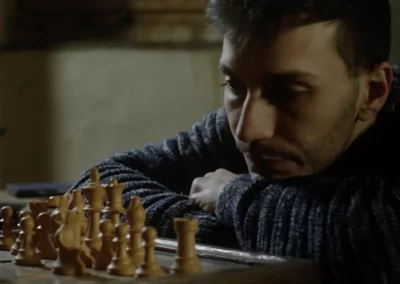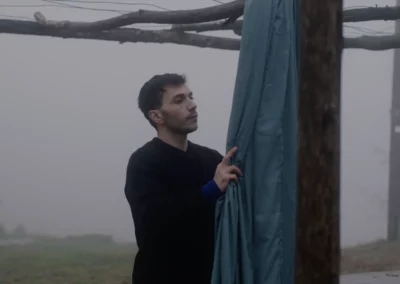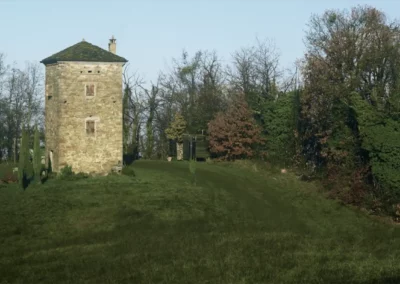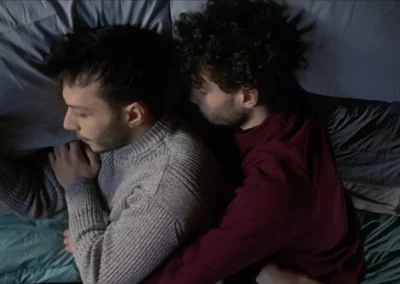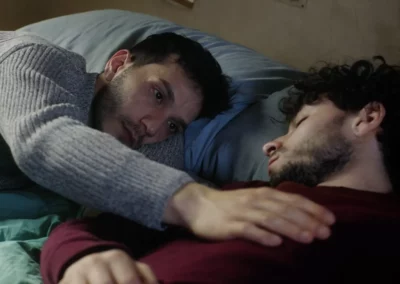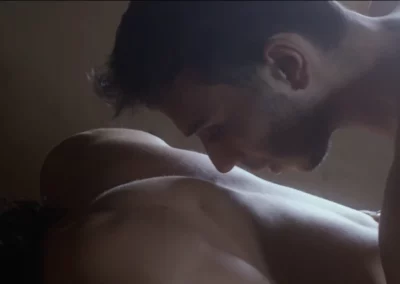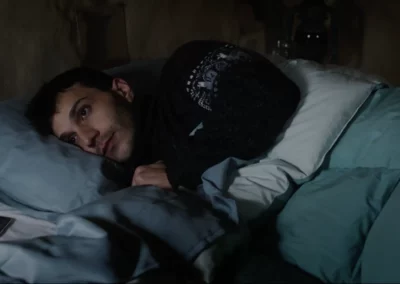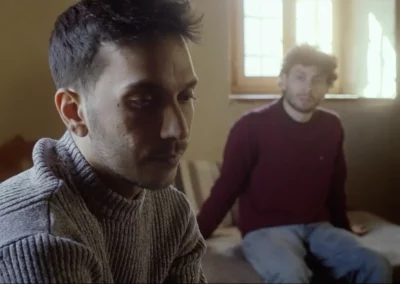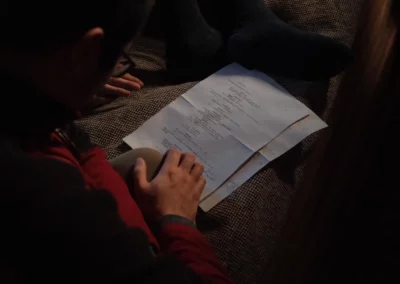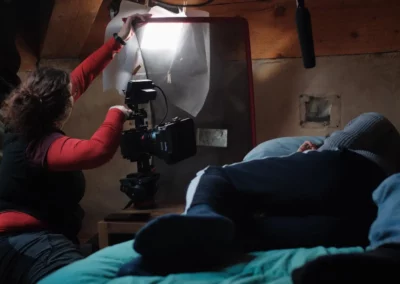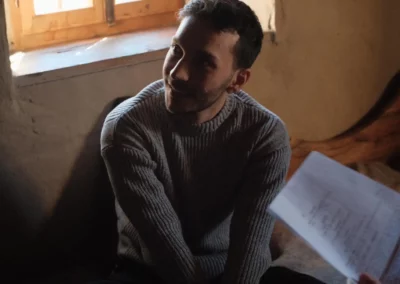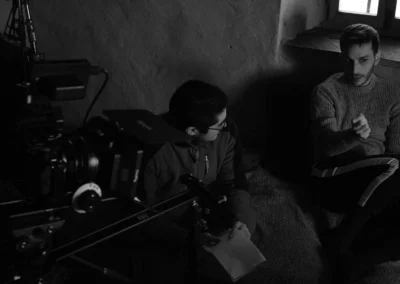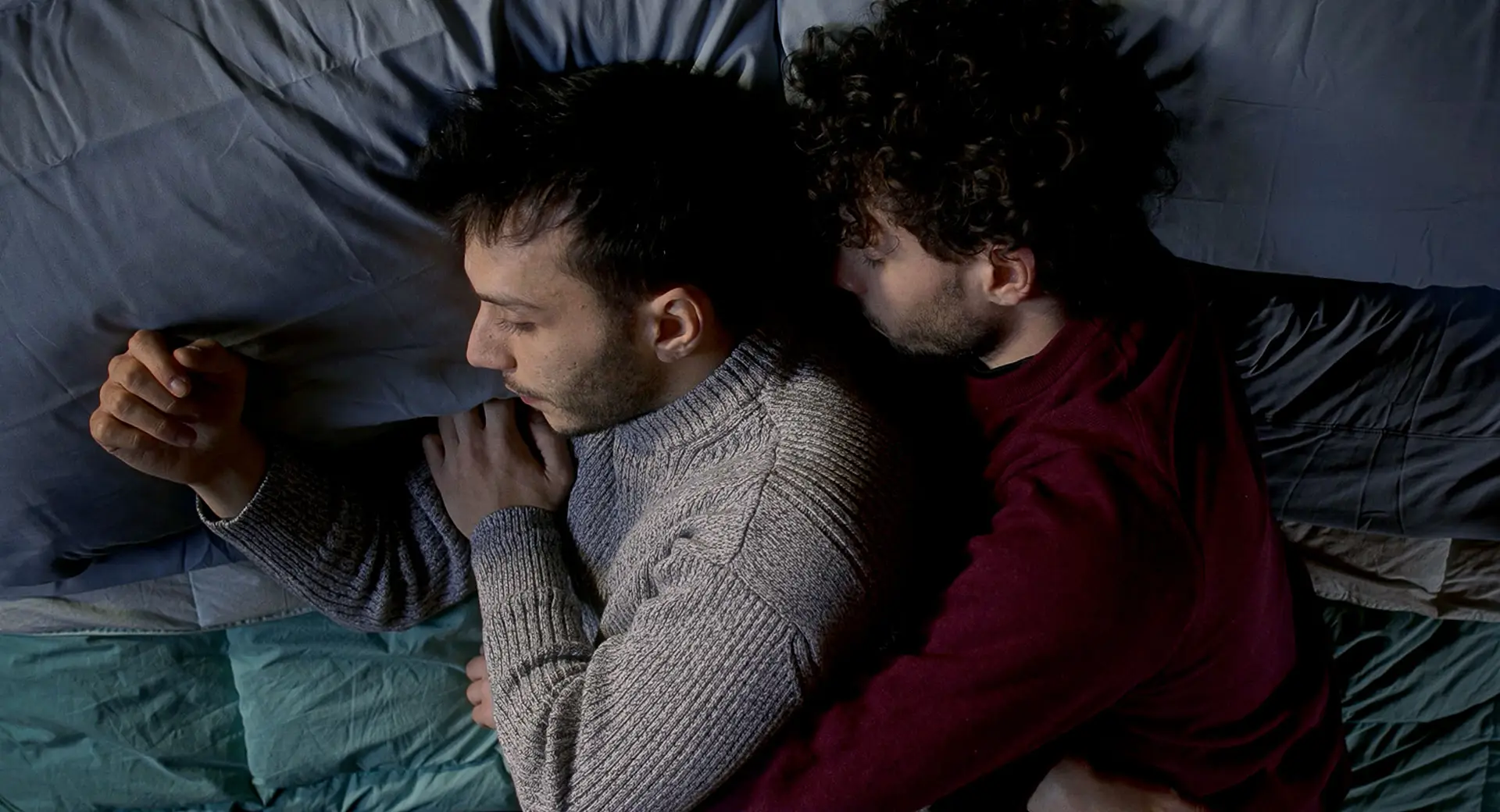
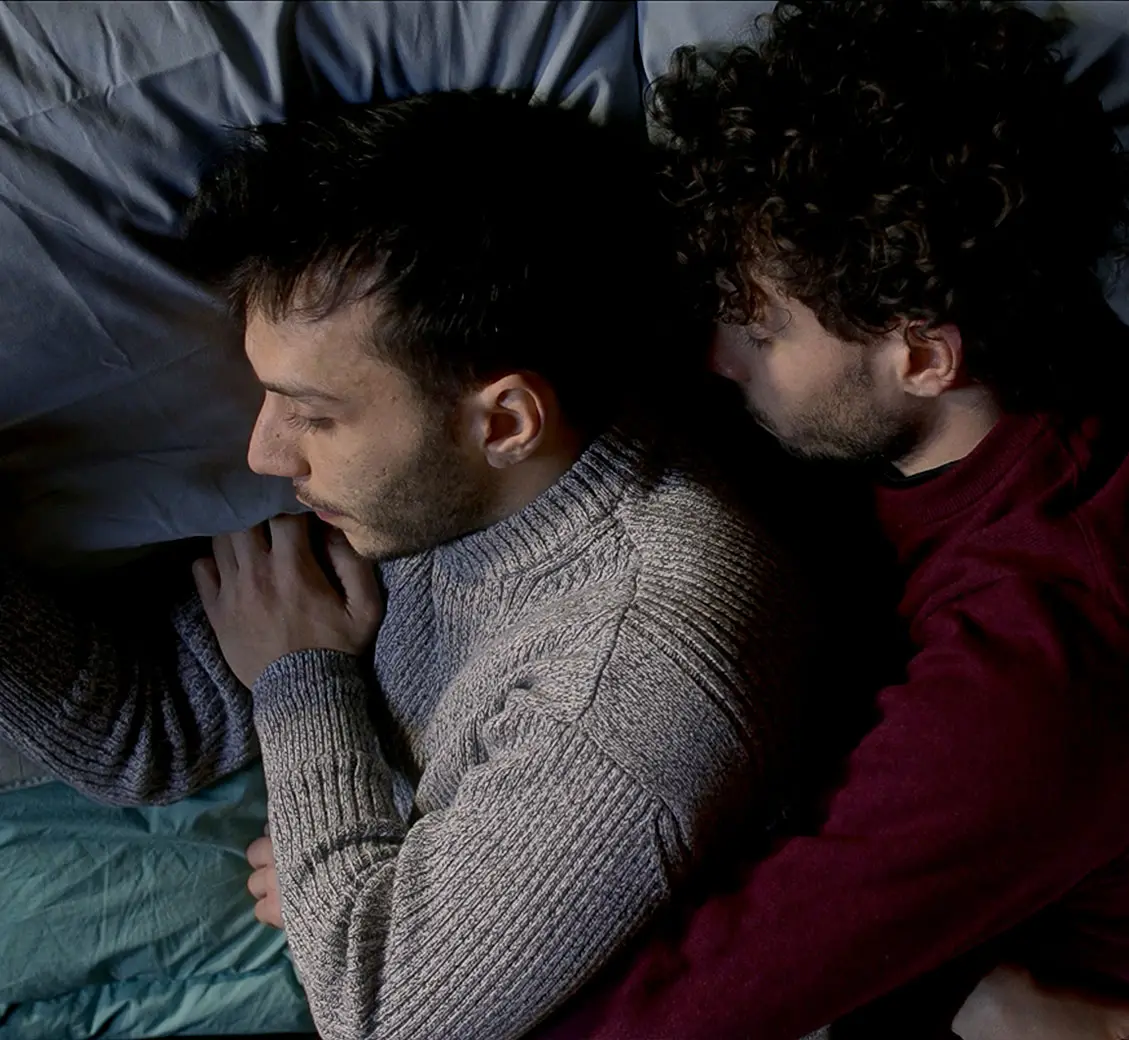
CASTLING
( ARROCCO )
by Federico Yang
short film / Drama
The solitude of a young hermit is disrupted by dreams of intimacy and an awkward appointment.
Synopsis
A young man, disappointed in human relations, moves into a tower in the middle of nowhere. However over time the pleasant solitude gives in to dreams of intimacy, and the hermit attempts to satisfy them by calling an escort. The encounter won’t go as imagined, but will encourage him to question his solitary life.
CASTLING
( ARROCCO )
by Federico Yang
short film / Drama
The solitude of a young hermit is disrupted by dreams of intimacy and an awkward appointment.
Synopsis
A young man, disappointed in human relations, moves into a tower in the middle of nowhere. However over time the pleasant solitude gives in to dreams of intimacy, and the hermit attempts to satisfy them by calling an escort. The encounter won’t go as imagined, but will encourage him to question his solitary life.
CASTLING
( ARROCCO )
Italy, 2024 / 10′
a film by
Federico Yang
with
Antonio Prugno
Fabio Aricò
| Screenplay | Federico Yang |
| Director of Photography | Chiara Cappiello |
| Production Design | Federico Yang |
| Editor | Federico Yang |
| Composer | “La Solitude” di Joshua Kyan Aalampour |
| Sound | Valerio Pitorri Cristina Cascone |
| Camera Assistant | Noah Záborszky |
| Titles | Alessandro Maoloni |
| Producer | Federico Yang |
| Distribution | Alpha Film |

Official Selections
- Capital City Film Festival
USA, 2025 - Portobello Film Festival
UK, 2024 - Festival Internacional de Cine LGTB+ OutfestPerú
Peru, 2024 - GAZE International LGBTQIA Film Festival
Ireland, 2024 - 9FilmFest
Thailand, 2024 - Transforma – Santa Catarina’s Intern. Diversity Film Festival
Brazil, 2024 - Findecoin – Independent International Short and Feature
Venezuela, 2025 - VisualFest
Italy, 2024
The director
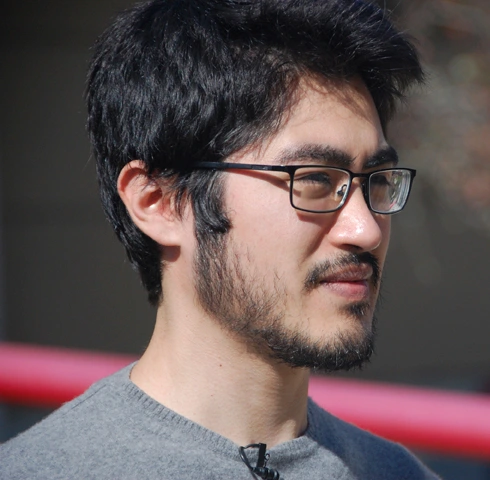
Federico Yang
Biofilmography
Sino-Italian filmmaker, Federico Yang earned a bachelor degree, at the Rome University of Fine Arts, and a Master of Fine Arts, at the San Francisco State University, both in Cinema. He made and contributed to several student films. His academic journey culminated in the short film “Castling”.
Director statement
Castling’s story has changed significantly over the past few years, much like myself. Its focus has gradually shifted from sex to intimacy, to feeling a true and deep connection with another human being. It’s an experience that I personally find as beautiful as it is utopian; a sentiment inherited by Arrocco’s protagonist. So much so that I’m uncertain whether Francesco makes the correct choice at the end. I want to believe he does, and I hope the viewer feels the same way.




